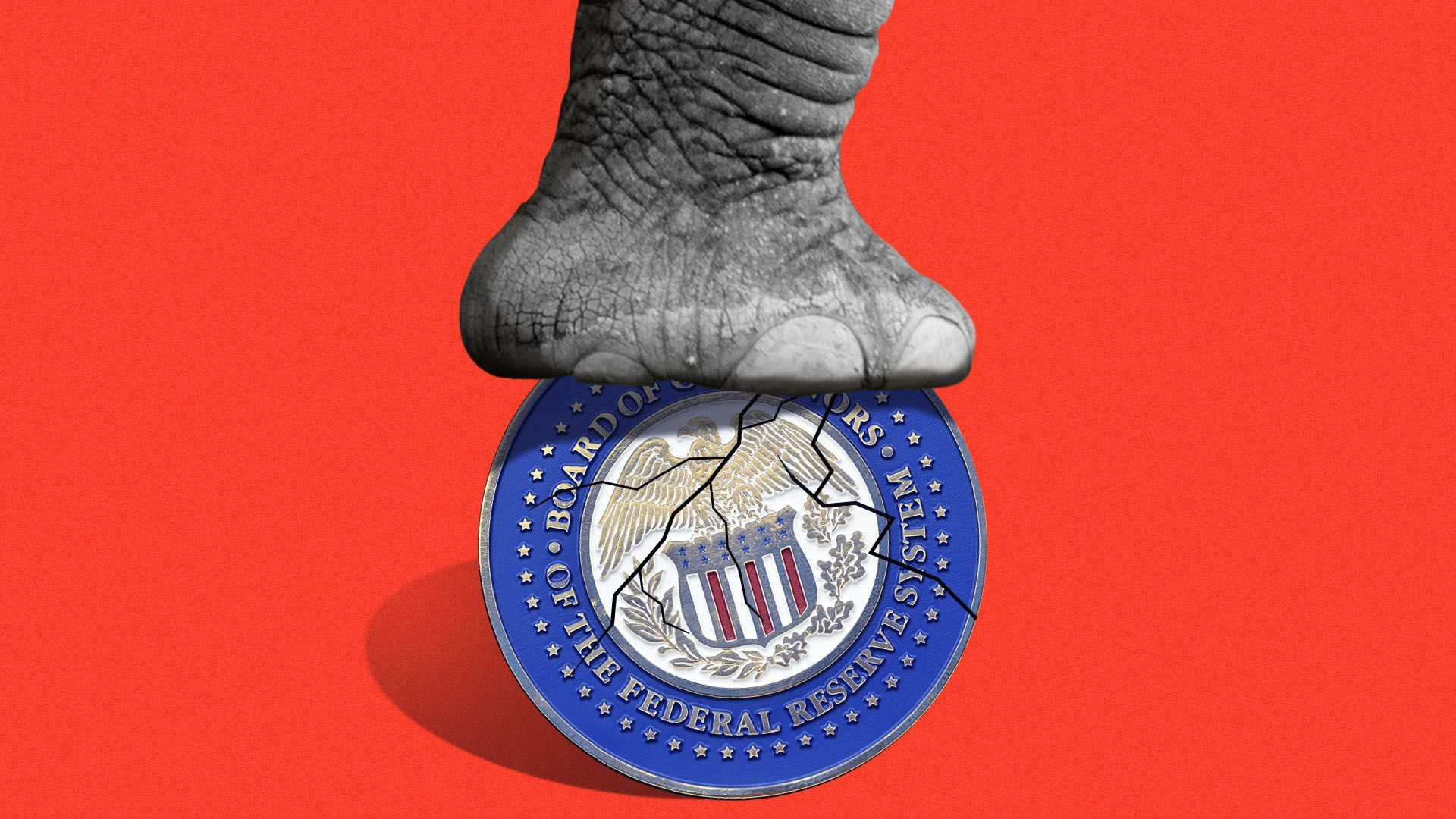Republicans take aim at the Fed
Add Axios as your preferred source to
see more of our stories on Google.

Illustration: Sarah Grillo/Axios
Republicans began their latest attack on the Fed over the weekend, seeking to rein in the central bank's ability to recreate the slate of lending programs it rolled out in March, when it announced an open-ended commitment to move into corporate bonds and keep credit flowing.
What happened: Sen. Pat Toomey (R-Pa.) and a group of Republican senators had proposed curbing the central bank’s lending powers to prevent new programs from being created that provide direct lending to large and medium-sized companies and the purchase of bonds from corporations and municipalities with just approval from the Treasury.
- "It could potentially be used as a back door to do state, local aid, which I think is the idea, without Congress' approval," Sen. John Cornyn (R-Texas) told reporters on Friday.
- Sen. John Thune (R-S.D.) echoed those statements, saying the Fed's current authority to provide funding "exists beyond the temporary period which could be leveraged to create a lot more authority and spending."
Where it stands: While the final coronavirus relief bill agreed to by Congress reportedly includes a compromise on the Fed's capabilities, don't expect this to be the end of it.
Flashback: In his 2015 book "The Courage to Act" former Fed chair Ben Bernanke recalled how he was grilled by Congress over the Fed's quantitative easing programs that propped up banks during the financial crisis. The actions buoyed the banking sector and the economy but eventually led to significant growth in wealth and income inequality.
- “[T]he increasing hostility of the Republicans to the Fed and to me personally troubled me, particularly since I had been appointed by a Republican president who had supported our actions during the crisis," Bernanke wrote.
- "[I]t seemed to me that the crisis had helped to radicalize large parts of the Republican Party."
The big picture: Chair Jerome Powell and the Fed are likely to face similar hostility next year, and it could be much worse.
- Powell's Fed took substantially greater action — going so far as to use taxpayer funds to backstop bond purchases from megacorporations like Apple and Verizon as well as those of junk-rated companies, including some in the contentious oil and gas sector.
- The Fed's popularity is lower than it was coming out of the global financial crisis, with the latest Axios/Ipsos poll finding 42% of Americans have at least some trust in the Fed, while 56% have not very much trust or none at all.
- (Those numbers were up notably from earlier in the year when only around 35% of Americans said they trusted the central bank.)
- Economic inequality is now far greater than it was at the beginning of the year — and it was at record levels then.
